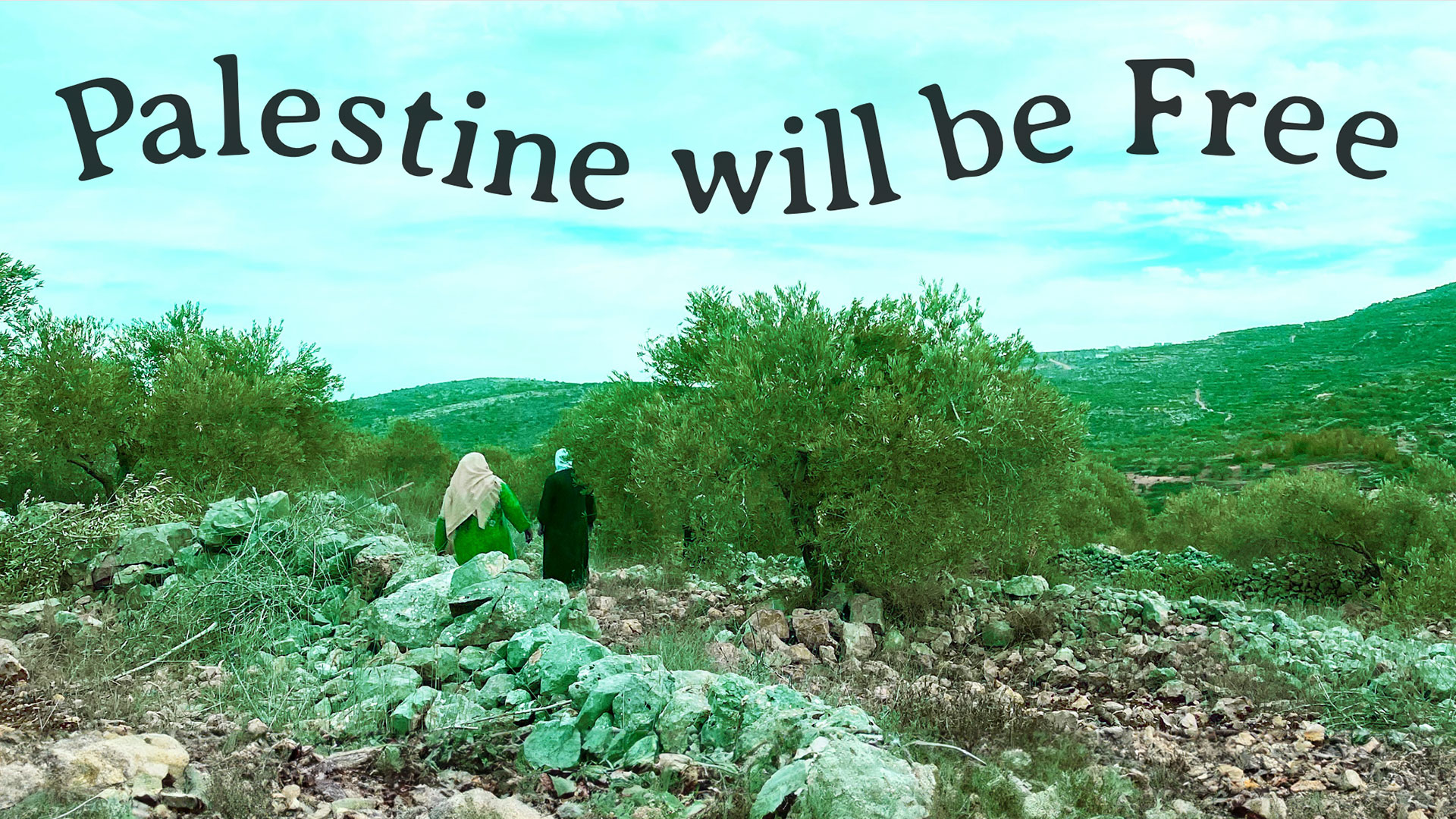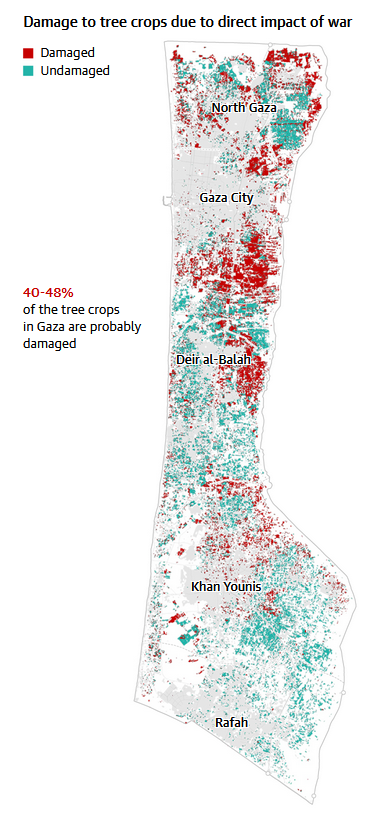
Insert graphic below credit Guardian and Dr He Yin, assistant professor, geography department, Kent State University
 The Geneva conventions require that warring parties not use methods that cause “widespread, long-term and severe damage to the natural environment.” It is a war crime under the Rome Statute, which governs the international criminal court, to intentionally launch an excessive attack knowing that it will cause widespread, long-term and severe damage to the natural environment.
The Geneva conventions require that warring parties not use methods that cause “widespread, long-term and severe damage to the natural environment.” It is a war crime under the Rome Statute, which governs the international criminal court, to intentionally launch an excessive attack knowing that it will cause widespread, long-term and severe damage to the natural environment.
According to satellite analysis by Forensic Architecture, a British research group that investigates state violence, before the Israeli assault on Gaza that began October 7, 2023, farms and orchards covered about 47% of Gaza’s total land area. By the end of February, Israeli military activity had destroyed more than 38% of that land. Nearly one-third of Gaza’s 7,500 greenhouses have also been destroyed entirely.
Samaneh Moafi of Forensic Architecture describes the destruction as systematic. After initial damage from aerial bombardment, ground troops arrived and dismantled greenhouses completely, while tractors, tanks and vehicles uprooted orchards and fields of crops. “What’s left is devastation. An area that is no longer livable.”
According to a report in the Guardian,
The full extent of the damage in Gaza has not yet been documented, but analysis of satellite imagery provided to the Guardian shows the destruction of about 38-48% of tree cover and farmland. Olive groves and farms have been reduced to packed earth; soil and groundwater has been contaminated by munitions and toxins; the sea is choked with sewage and waste; the air polluted by smoke and particulate matter.
A member of the Abu Suffiyeh family said of their Gaza farm,
There is almost nothing to recognize there. It is now the same as it was before: desert. There is no single tree there. No traces of prior life. If I was to go there, I wouldn’t be able to recognize it.
Source: “‘Ecocide in Gaza’: does scale of environmental destruction amount to a war crime?” Guardian